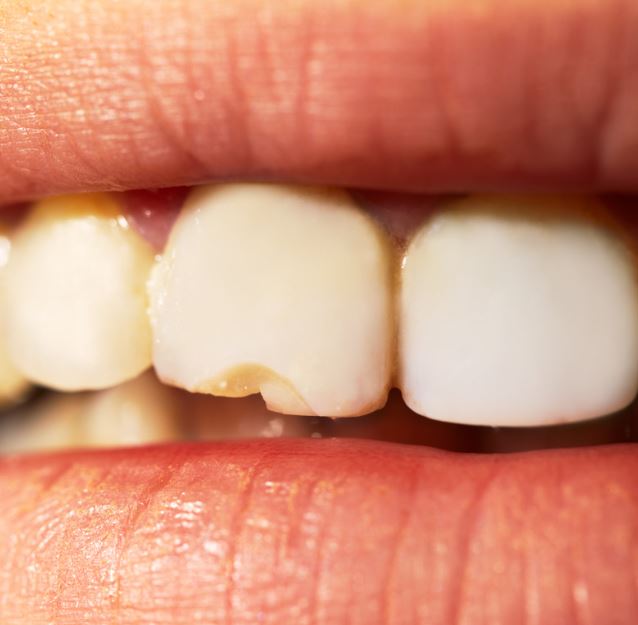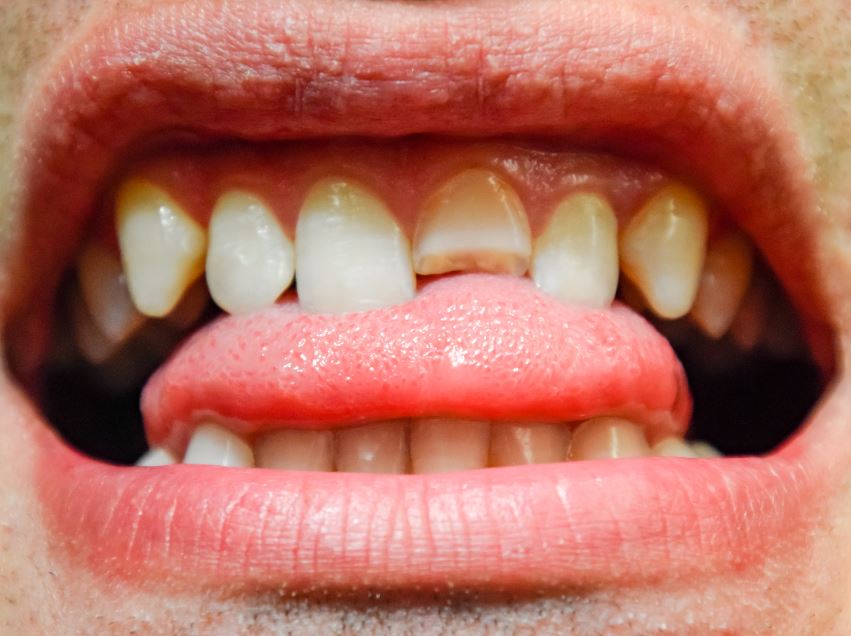Why You Should Get a Chipped Tooth Treated Sooner Rather Than Later
Your tooth enamel is the hardest substance in the human body. The enamel is the first and most important line of defense against tooth decay and plaque, and it helps protect the tooth from injury. However, we put our teeth through tons of abuse every day by chewing. Here are a few more things that can cause a tooth to chip:
- Biting down on hard substances such as ice, hard candy, plastics (we’re looking at you, pen-chewers), or popcorn kernels.
- Engaging in activities that may cause trauma to the face or mouth, such as playing contact sports without a mouth guard or experiencing a fall or car accident.
- Grinding teeth excessively, a condition known as bruxism, which wears down the surface of the teeth and makes them more likely to chip in the future.
- Engaging in bad habits like nail-biting.
- An accident or trauma to the face or mouth.

Chipped teeth are a common dental emergency. Sometimes it is caused by everyday wear and tear, other times it’s a sudden trauma. It can be embarrassing and sometimes very painful, but it’s important to seek emergency dental attention right away.
The risks of not treating a chipped tooth can have various implications for oral health and overall well-being. Here are the potential risks:
- Pain and Sensitivity: A chipped tooth can cause pain and increased sensitivity, especially when exposed to hot or cold temperatures. This can make eating and drinking uncomfortable.
- Tooth Infection: A chipped tooth can expose the inner structures of the tooth, making it more susceptible to infections and cavities. Without treatment, the risk of developing an infection increases, potentially leading to further nerve damage and the formation of an abscess, which can be dangerous to both the tooth and your overall health.
- Further Breakage: A chipped tooth compromises the integrity of the tooth, making it more susceptible to further breakage. Without treatment, the chip may worsen, leading to a broken tooth that requires more extensive and expensive treatment to repair.
- Gingivitis and Tooth Loss: Delaying treatment for a chipped tooth can lead to gingivitis and, over time, may result in tooth loss.
- Aesthetic Concerns: A chipped tooth can affect the appearance of the smile, leading to a less-than-desired smile that may impact self-confidence and social interactions.

What if I have chipped my tooth? What do I do
If you have chipped a tooth, here are the steps you should take:
- Assess the Severity: Determine the severity of the chip. If it’s a minor chip and not causing severe pain, it may not be a medical emergency, but it’s still important to seek treatment to avoid infection or further damage to the tooth.
- Contact an Emergency Dentist: Make an appointment with a dentist as soon as possible. You can book an appointment with us over the phone, or walk right in and we’ll get in a seat as soon as we can. We know chipped teeth never happen at convenient times. Our dentists will be able to diagnose the severity of the chip and recommend the appropriate treatment.
- Avoid DIY Methods: Refrain from attempting to fix the chipped tooth using do-it-yourself methods, as there are no permanent DIY solutions for a chipped tooth.
- Prevent Further Damage: While waiting for your dental appointment, take care to avoid activities or foods that could further damage the chipped tooth, such as biting down on hard substances or engaging in activities that may cause trauma to the mouth.
In summary, if you have chipped a tooth, it’s important to contact a dentist ASAP, avoid DIY methods to prevent further damage, and follow the advice and treatment plan provided by our dentists. Minor chips can take roughly 30 – 60 minutes to correct by a professional and more extensive chips may require multiple trips back to the office.
So call us today if you’re having issues with your oral health or have recently chipped a tooth. We’ll get you in AND be upfront about costs.